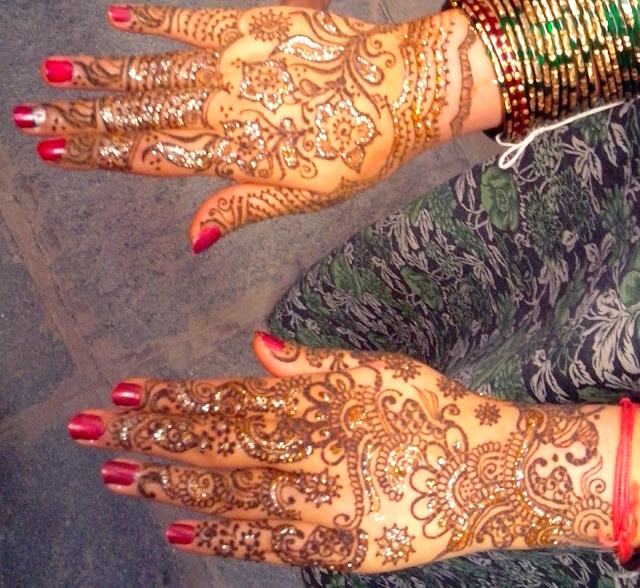Wonderful designs liked by bride.
Suitable for wedding occasions.
Henna stains are orange when the paste is
first removed, but darkens over the following
three days to a deep reddish brown. Soles and
palms have the thickest layer of skin and so
take up the most lawsone, and take it to the
greatest depth, so that hands and feet will
have the darkest and most long-lasting stains.
Some also believe that steaming or warming
the henna pattern will darken the stain, either
during the time the paste is still on the skin, or
after the paste has been removed. It is
debatable whether this adds to the color of the
end result as well. Chlorinated water and
soaps may spoil the darkening process;
alkaline products may hasten the darkening
process. After the stain reaches its peak color,
it holds for a few days, then gradually wears













